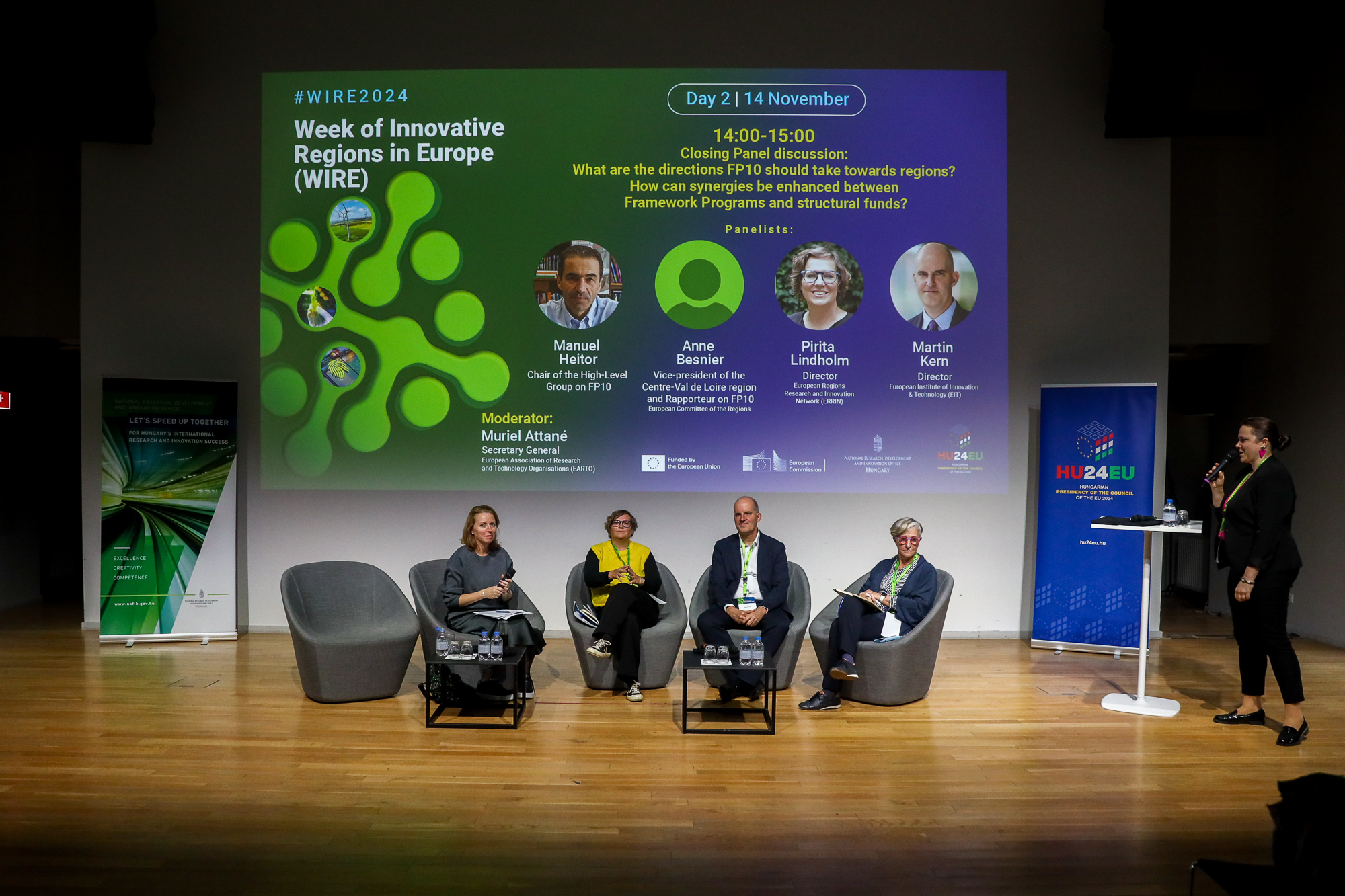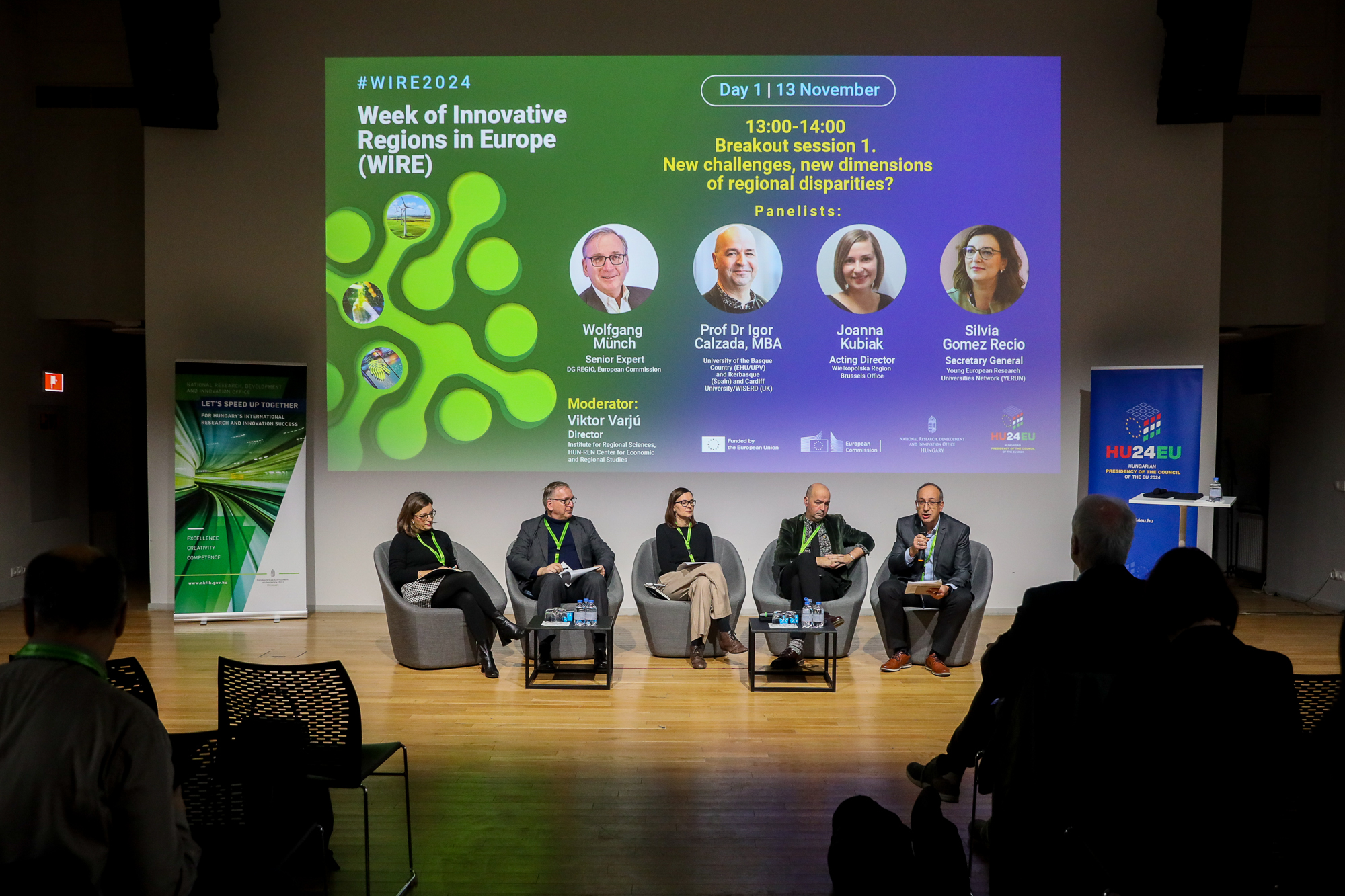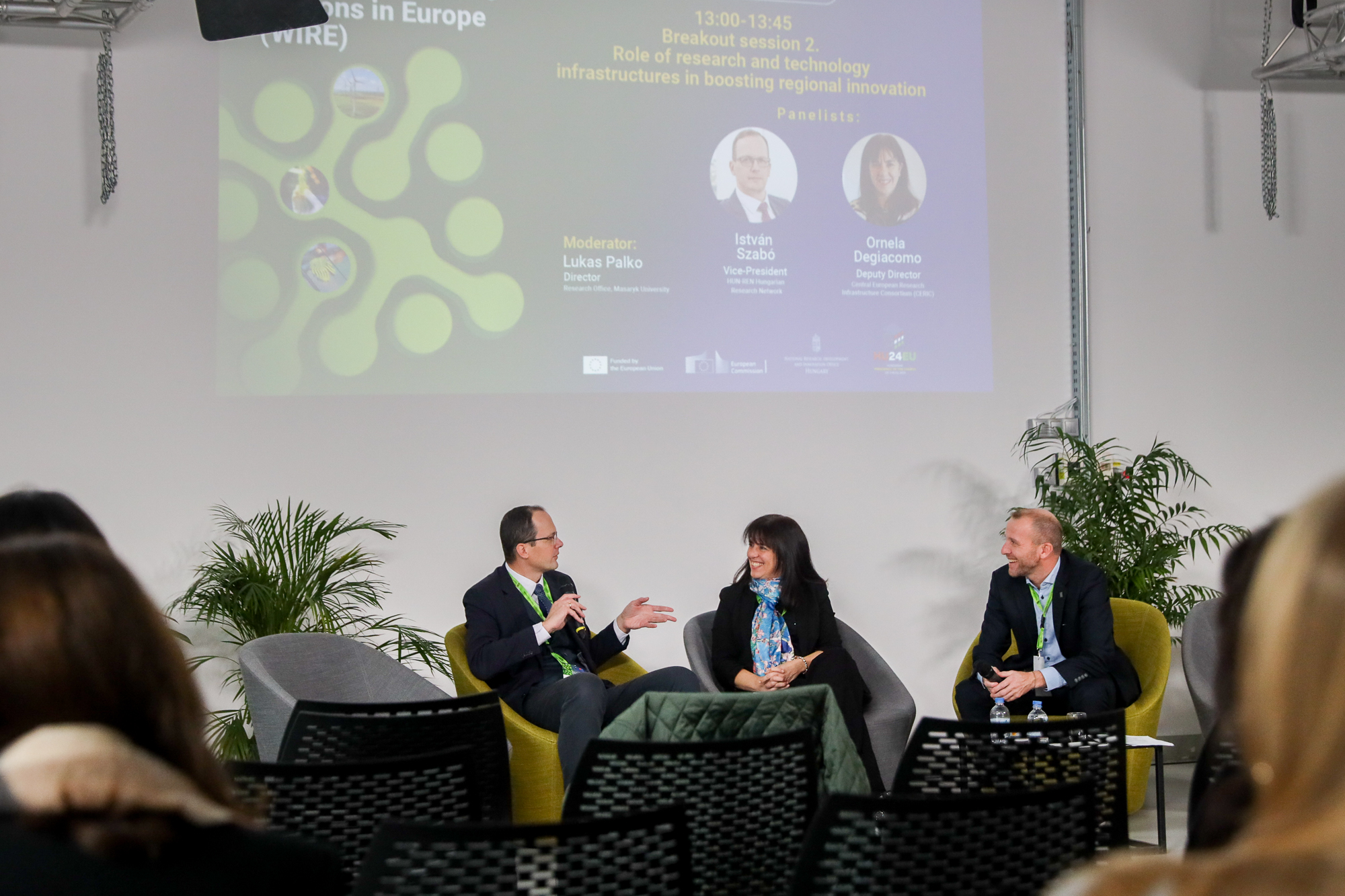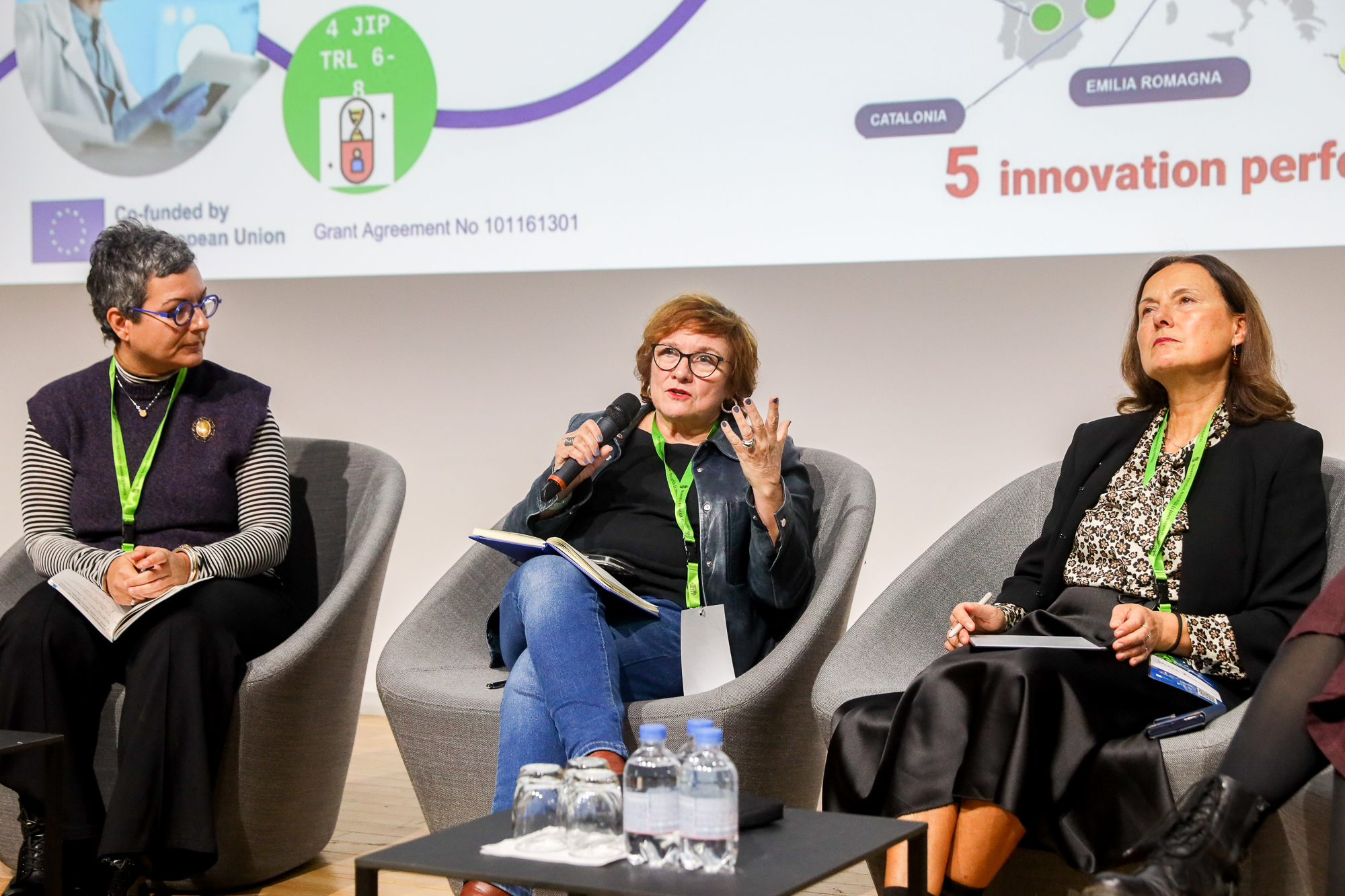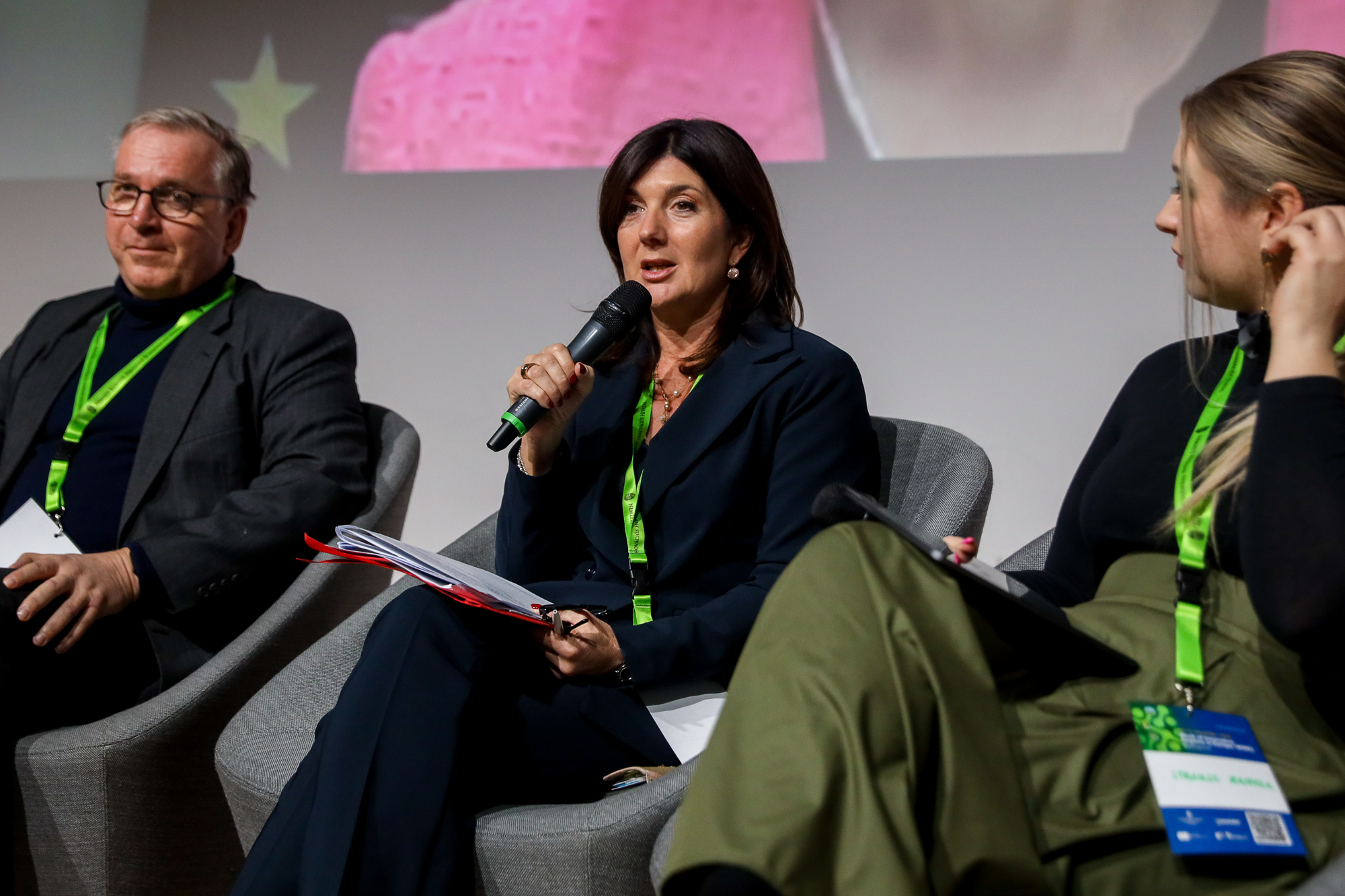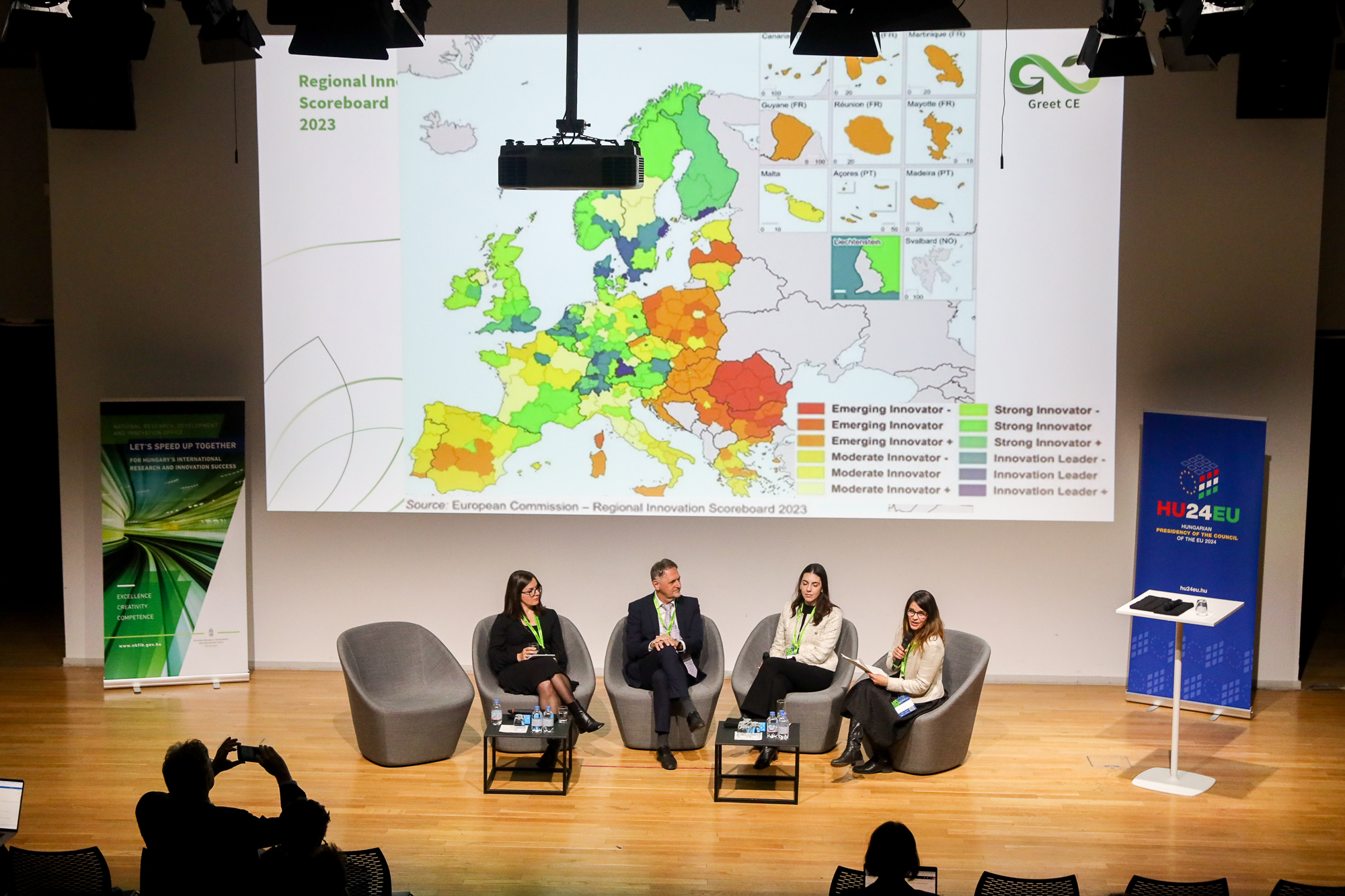On 13-14 November, the National Research, Development and Innovation Office organised one of Europe’s most important RDI conferences this year, the Week of Innovative Regions in Europe (WIRE), at the Moholy-Nagy University of Art and Design.
The event, held in the framework of the Hungarian EU Presidency , explored the role of regions in innovation, bringing together researchers, decision-makers, and innovation experts, that is, key regional stakeholders from 22 countries across Europe. The interest in the topic and the success of the event is reflected in the more than 160 registered participants and the high number of visitors to the online broadcast.
“The WIRE conference captured a particularly important moment in shaping the European RDI strategy”, emphasized Magda de Carli, Head of Unit at the European Commission’s Directorate-General for Research and Innovation, in her welcome address. She noted that the role of regions has also come to the forefront in both the ongoing and upcoming European research and innovation framework programmes. In this context, the conference programme featured discussions among leading European policymakers, researchers, heads of professional organizations, and regional innovation leaders on pressing topics in the European RDI policy discourse, such as the role of regions in research collaborations and enhancing Europe’s competitiveness, research funding opportunities available to regions, and initial experiences with the Regional Innovation Valleys (RIVs) initiative launched by the European Commission in 2023.
Participants emphasized the importance of developing interconnected regional ecosystems, sharing success stories and proven strategies to strengthen EU collaboration. They noted that bridging the innovation gap remains a significant challenge requiring action at EU, national and local levels. “We must focus on creating European added value”, said Manuel Heitor, Chair of the high-level working group for the next EU framework programme (FP10), in his presentation at the conference.
The discussions underscored the significance of the Regional Innovation Scoreboard in shaping policy but also highlighted the need for deeper analyses and uncovering correlations beyond quantitative indicators. Effective financing synergies emerged as another priority, requiring efficient planning, awareness-raising, and the sharing of best practices. Experts highlighted the importance of active participation from all ecosystem stakeholders, including the need for greater private sector involvement through targeted initiatives such as the 2025 call for proposals for Regional Innovation Valleys. Over the two-day event, there was a strong call to ensure that these topics take centre stage in the next EU framework programme, reflecting the critical role of innovation ecosystems in achieving long-term competitiveness.
Dr. Borbála Schenk, Head of Department at the NRDI Office, emphasized in her presentation that the WIRE conference represents significant progress toward the Hungarian Presidency’s priorities. The discussions and valuable insights shared during the event contribute to strengthening Europe’s competitiveness through research and development collaborations. The conference also placed a strong focus on reducing innovation disparities within Europe, showcasing the experiences of Central and Eastern European regions, including Hungary, and presenting examples of best practices.
A wealth of interesting information, videos and reports are available on the conference’s LinkedIn channel:
https://www.linkedin.com/company/week-of-innovative-regions-in-europe-2024/?viewAsMember=true
Footage from both days is available on the NRDI Office’s YouTube channel:
https://www.youtube.com/@InnovaciosOffice/videos









